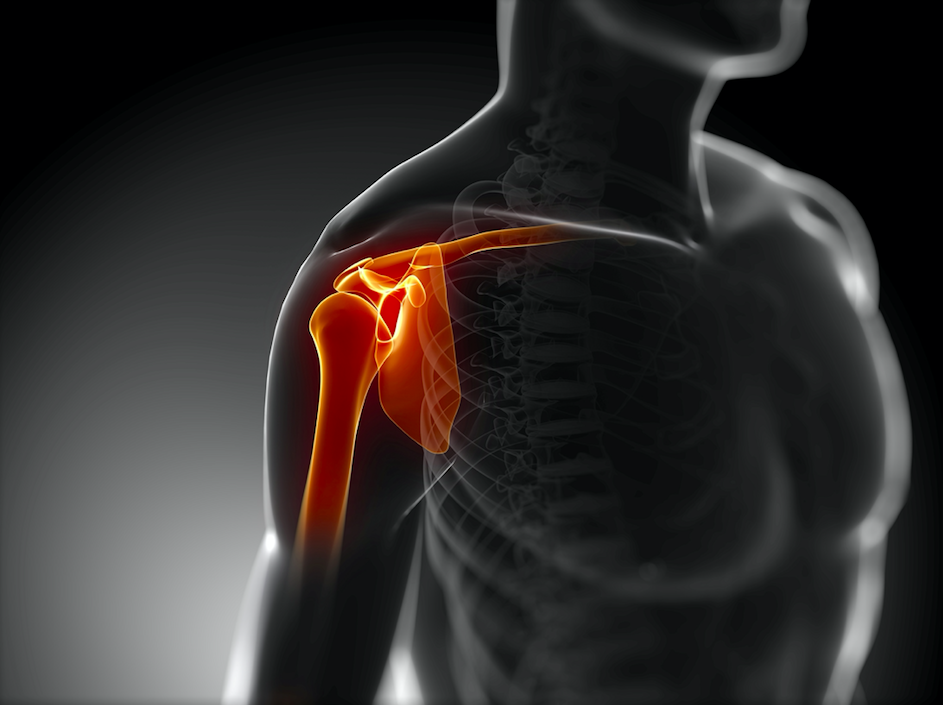Total shoulder arthroplasty is a well-established procedure for reinstating function and comfort to shoulders damaged by arthritis. If performed by an experienced surgeon, total shoulder replacement can be an effective technique for treating shoulders with damaged joint surfaces. Good planning and consistent rehabilitation efforts by a motivated patient will ensure the best possible outcomes. We have prepared a list of answers to questions you might have when considering a total shoulder replacement.
What Is A Total Shoulder Replacement?
In a total shoulder replacement, the arthritic surface of the ball is substituted by a metal ball with a stem which is inserted into the inside of the humerus. The socket is then resurfaced with a high-density component.
Should I Consider a Total Shoulder Replacement?
Surgery as a therapy to treat shoulder arthritis should only be considered when the arthritis is restricting the quality of the patient’s life and when other options have been tried or decided against for other reasons. Severe arthritis is usually best treated by either a partial or a complete joint replacement. A total shoulder arthroplasty is usually considered by patients who want the best chance for a speedy recovery of shoulder comfort and fully restored capability to perform activities of daily life.
Is My Orthopedic Shoulder Doctor in Wake County Going To Persuade Me To Have the Surgery?
Raleigh Orthopaedic Clinic doctors work closely with our patients to utilize all non-operative treatments prior to discussing joint surgery. If conservative treatment options no longer give the patient relief, joint replacement surgery will be discussed to decide if the patient would be a good candidate. However, at Raleigh Orthopaedic Clinic, the patient ultimately makes the decision about proceeding with surgery or continuing with non-operative treatment.

What Is the Total Shoulder Replacement Protocol?
After a general or regional anesthetic, this surgery is performed through an incision between the muscles on the forward-facing part of the shoulder. It consists of the release of adhesions and contractures and the elimination of bone spurs that might block mobility. Our team of surgeons, anesthesiologists, and surgical staff habitually perform this procedure in not more than two hours.
Who Should Probably Not Consider a Total Shoulder Replacement?
This surgery is less likely to be effective in patients with multiple previous shoulder surgeries, diabetes, depression, obesity, Parkinson’s disease, rotator cuff deficiency, shoulder joint infections, and severely altered shoulder anatomy. Consult your orthopedic shoulder doctor in Wake County in order to evaluate your condition.
How Should I Prepare for the Total Shoulder Surgery?
As for all elective surgical procedures, the patient should be in top physical and mental health at the time of the procedure. Any issues should be managed before the surgery. The shoulder surgeon has to be aware of all health problems, including allergies, as well as all non-prescription and prescription medications being taken. Some of them may need to be altered or stopped before the time of procedure.
What Should I Expect After the Total Shoulder Surgery?
Total shoulder arthroplasty is a major surgical procedure. Immediately after surgery, strong pain medication is often given by injection. After a day or so, oral pain medication is usually adequate. The total shoulder replacement rehabilitation program begins on the day of the surgery. The patient is stimulated to be up and out of bed shortly after surgery and to reduce their usage of pain medications with time. Hospital discharge typically takes place on the second or third day post-surgery.
Patients should avoid lifting more than one pound and minimize pushing and pulling objects for approximately six weeks after the procedure. Driving is permitted only after the shoulder has recovered the necessary mobility and strength. This may take more than a few weeks after surgery. Consequently, the patient should be prepared for reduced arm functioning for about a month or so after the procedure. Patients usually need some support with self-care, activities of daily life, shopping, and driving for the six weeks after the surgery. Management of these restrictions entails advance planning of activities of daily living throughout the period of recover from the total shoulder replacement.
What Are the Possible Complications of a Total Shoulder Replacement?
This procedure is invasive and conducted under general anesthesia. At Raleigh Orthopaedic Clinic, we have the advantage of having a highly qualified team of surgeons, anesthesiologists, nurses, and physical therapists all devoted to ensuring patient safety and the best results possible. However, there are still risks linked to the procedure, including the miniscule chances of bleeding problems, heart problems, breathing problems, blood clots, blood pressure problems, infection, nerve injury, stiffness, pain, instability, fracture, tendon and muscle failure, and the need for revision surgery.
These are fundamentally the same risks as for all joint replacement surgeries. At Raleigh Orthopaedic Clinic, we are happy to discuss these risks with you and explain how we strive to avert them and how we manage them in the rare occurrence that they occur.
The Raleigh Orthopaedic Clinic’s board-certified, fellowship-trained total joint replacement surgeons bring together many years of experience to manage and treat joint complications resulting from degenerative joint diseases such as arthritis, musculoskeletal disease or joint trauma.
To schedule an appointment with one of our orthopedic shoulder doctors in Wake County, please call 919-781-5600
Source: https://orthoinfo.aaos.org/en/treatment/shoulder-joint-replacement/
The material contained on this site is for informational purposes only and DOES NOT CONSTITUTE THE PROVIDING OF MEDICAL ADVICE, and is not intended to be a substitute for independent professional medical judgment, advice, diagnosis, or treatment. Always seek the advice of your physician or other qualified healthcare provider with any questions or concerns you may have regarding your health.